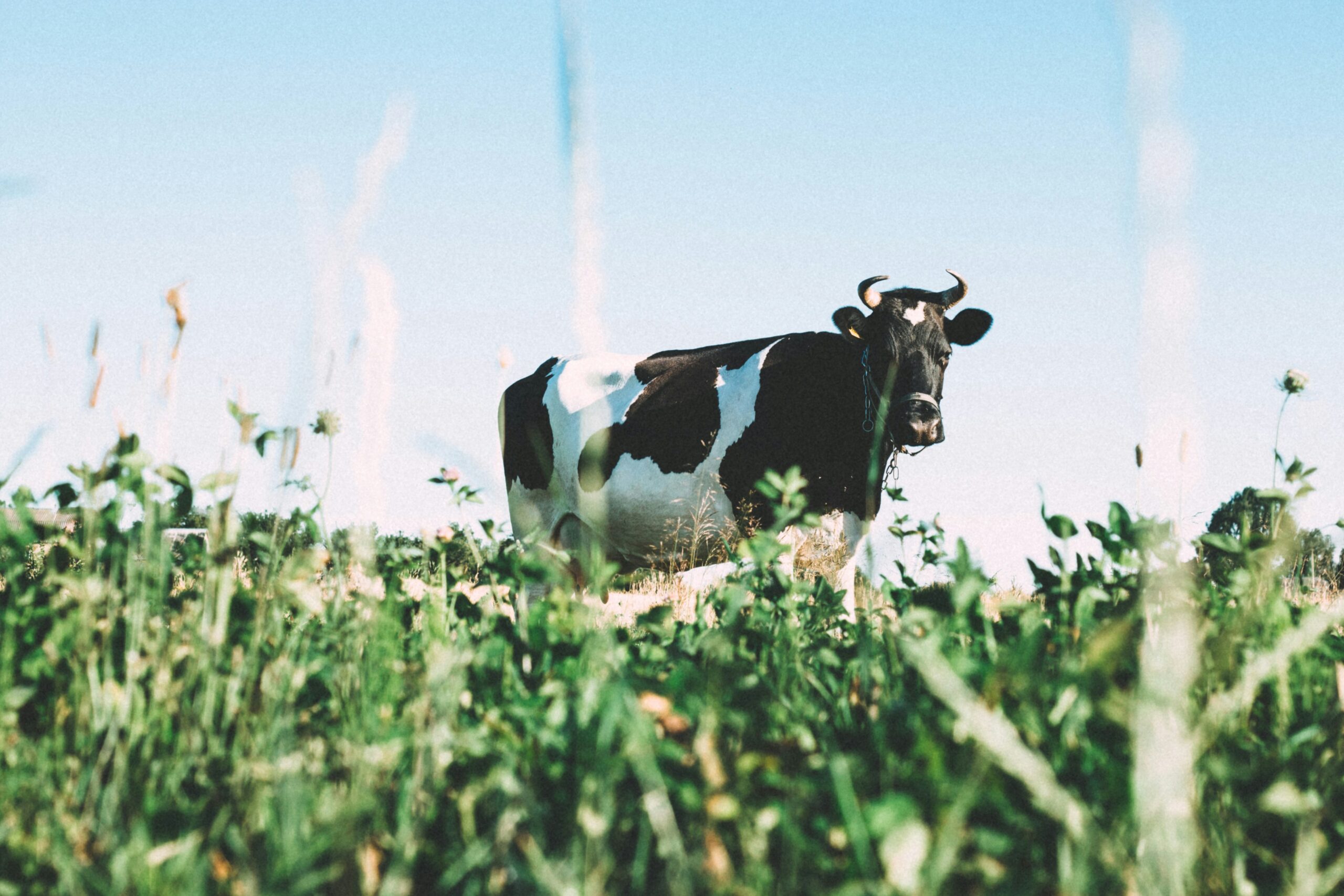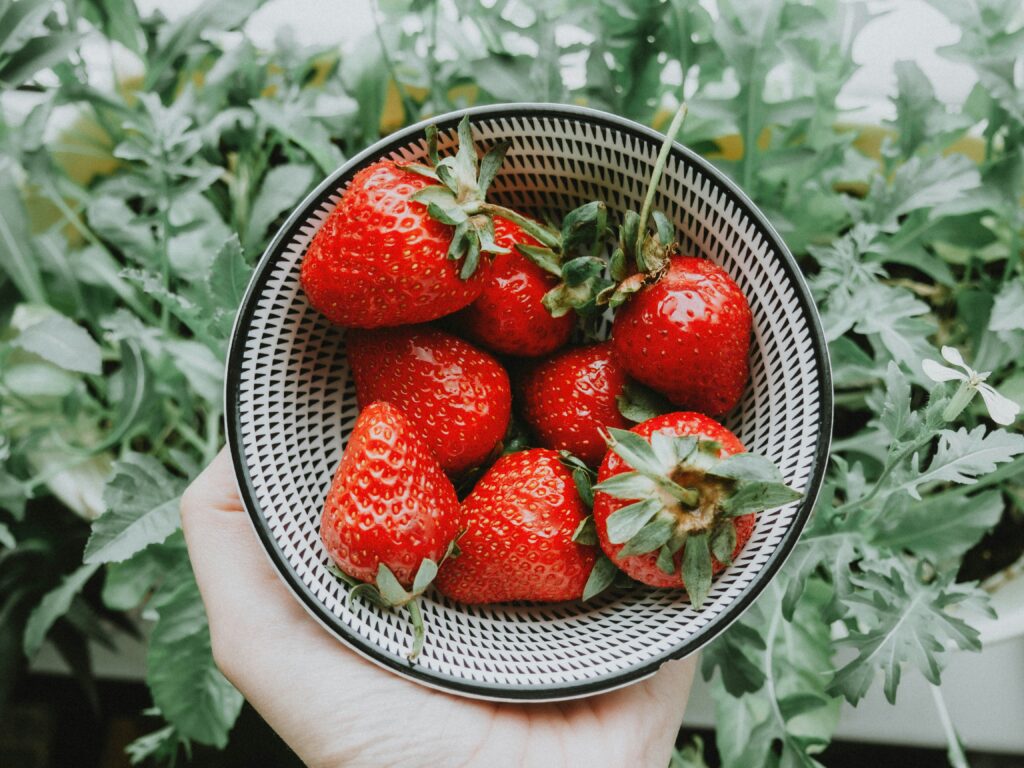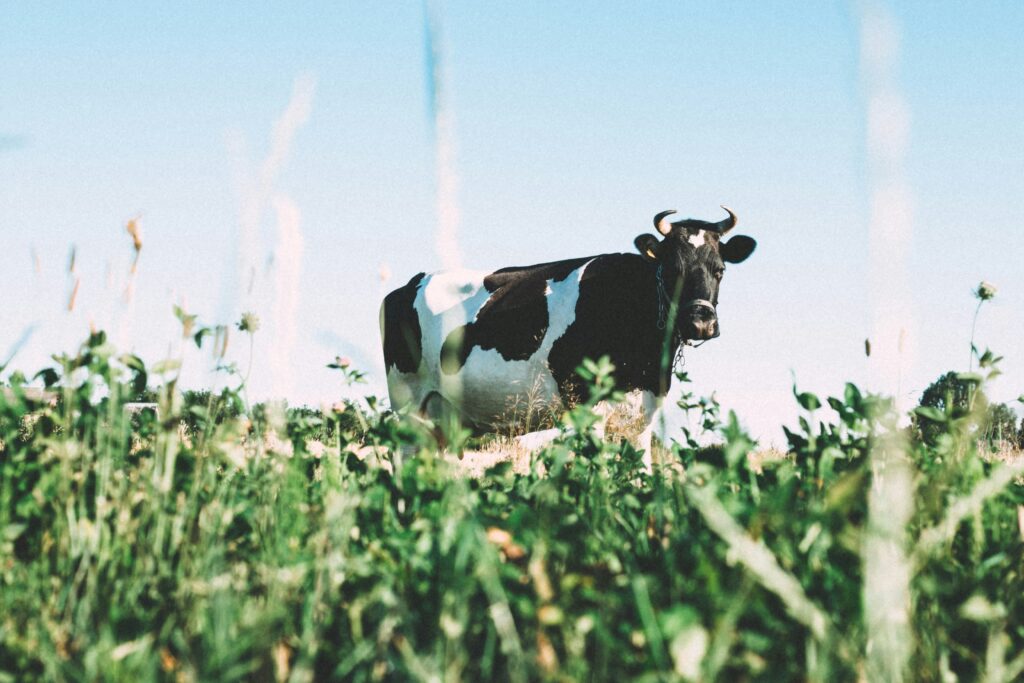
Foods for Perimenopause – What To Add To Your Cart This Week
Selecting the right foods for perimenopause can completely revolutionise your perimenopause experience. But this is often the case of “it’s easier said than done.”
With that in mind, here’s a list of the best foods for perimenopause and why so you can add them to your trolley this week.
Last Updated:
What is perimenopause?
Before we dive into the best foods for perimenopause, let’s rewind and explore the basics. What exactly is perimenopause?
Perimenopause is a transitional period between pre-menopause and menopause itself. Usually, when people are struggling with menopause symptoms, they often believe they are menopausal. More often than not, they’re perimenopausal.
Menopause is, in fact, just one day.
Perimenopause is when you’re experiencing the typical symptoms of menopause but you’re still having periods – even if they are irregular and different to how they used to be.
You have officially reached menopause when you have had no vaginal bleeding (including spotting) for 12 consecutive months. Even if you don’t bleed for 11 months but then you have a day of spotting, your timer has to restart and you’re perimenopausal.
Common symptoms of perimenopause
All the symptoms you associate with menopause are also symptoms of perimenopause. These include (but aren’t limited to):
- Hot flashes and night sweats
- Sleep disturbance, fatigue and insomnia
- Muscle and joints aches
- Changes to libido, itchy vulva and overall vaginal dryness
- Brain fog, a lack of focus and memory loss
- The need to urinate more frequently
- Bloating
- Weight gain and trouble with weight control
- Depression, anxiety and panic attacks
Keep in mind that there are at least 34 documented symptoms of perimenopause. Every woman is different – some experience many while the lucky ones experience none! The severity and frequency of these symptoms will be unique to each woman, too. There’s really no “right way” to do perimenopause.
How do foods for perimenopause help with symptoms?
What you feed your body has a direct impact on how you feel, no matter what stage of life you’re in. That’s why there are certain foods for perimenopause that can improve your symptoms.
Eating the right foods for perimenopause can aid with:
- Sleep and fatigue
- Mood swings and general mental health
- Weight control
- Cardiovascular health
- Hot flashes and night sweats
- Bloating and inflammation
- Bone density and overall bone health
- Hormonal imbalances (which can cause hot flashes, mood swings and irregular periods.)
- Constipation
That said, there are also foods that can make your symptoms worse. That’s why it’s important to know what to eat to feel like you again.
Best foods for perimenopause
The world of perimenopause can be confusing – with so many articles out there offering contradictory advice.
That’s why this article is simple, offering a list of the best foods for perimenopause.
Online food shop website up and ready to go? Let’s go shopping and slay your symptoms!
1. Proteins for perimenopause
First up: proteins.
As you transition towards menopause and you’re experiencing perimenopause, your muscle mass will naturally decrease. That’s why protein is so crucial – it helps to build and maintain muscle mass.
Best proteins for perimenopause
The best proteins for perimenopause include:
- Lean meats (chicken and turkey)
- Tofu
- Eggs
- Nuts and seeds
- Fish
- Legumes (particularly lentils and chickpeas)
- Yoghurt
2. Increase your fibre intake
Fibre can play a huge role in reducing perimenopause symptoms, which is why fibre-rich foods are often the ideal foods for perimenopause.
Not only does fibre make you feel fuller for longer – aiding with weight loss – but it also helps with heart health, reducing your risk of heart disease, stroke and some types of cancer.
Best foods for perimenopause that are rich in fibre
High-fibre foods that help with your perimenopause symptoms include:
- Fruits
- Strawberries
- Raspberries
- Apples
- Pears
- Bananas
- Avocado
- Vegetables
- Beetroots
- Carrots
- Broccoli
- Sweet potatoes
- Artichoke
- Brussels sprouts
- Legumes
- Lentils
- Kidney beans
- Chickpeas
- Other foods
- Popcorn
- Quinoa
- Oats
- Almonds
- Chia seeds
- Dark chocolate

3. Omega-3 fatty acids will help with perimenopause symptoms
If you’re struggling with bloating, omega-3 fatty acids help with inflammation. Not to mention, omega-3 fatty acids have been seen to reduce symptoms of depression and anxiety, which – unfortunately – are both pretty common during perimenopause.
Foods full of omega-3 fatty acids to eat during perimenopause
To increase your intake of omega-3 fatty acids, add the following foods to your trolley:
- Fatty fish
- Mackerel
- Salmon
- Sardines
- Tuna
- Herring
- Seeds and nuts
- Walnuts
- Chia seeds
- Flaxseeds
- Hemp seeds
- Sunflower seeds
- Seafood
- Caviar
- Squid
- Mussels
- Fruits
- Guavas
- Blackberries
- Raspberries
- Vegetables
- Broccoli
- Courgette
- Spinach
- Kale
4. Get your healthy dose of calcium and vitamin D for stronger bones
Another common perimenopause symptom is a loss of bone density, leading to an increased risk of osteoporosis. It’s more important than ever to look after your bones when you reach perimenopause, meaning calcium and Vitamin D are crucial. That’s why these calcium and vitamin D rich items are among the best foods for perimenopause.
Calcium will also help with achy and painful joints. So, make sure you’re getting your daily dose.

Foods full of calcium and vitamin D for perimenopause
Foods that are rich in calcium include:
- Dairy foods
- Yoghurt
- Milk
- Kefir
- Cheese
- Fish
- Sardines
- Vegetables
- Okra
- Kale
- Spring greens
- Edamame beans
- Broccoli
- Bok choi
- Watercress
- Swede
- Fruits
- Apricots
- Blackcurrants
- Blackberries
- Oranges
- Beans, nuts and pulses
- Chickpeas
- Kidney beans
- Brazil nuts
- Walnuts
Vitamin-D rich foods include:
- Fatty fish
- Egg yolks
- Tofu
- Yoghurt
- Cheese
- Beef liver
- Mushrooms
- Oranges (and orange juice)
Worst foods for perimenopause
Just as there are good foods for perimenopause, there are also foods that make symptoms worse.
So, with that in mind, here are the worst foods for perimenopause for you to avoid.
1. Caffeine and alcohol
If you’re suffering with perimenopause symptoms, caffeine and alcohol are more than likely going to exacerbate them and make them worse. This is particularly true if you’re struggling with hot flashes, night sweats, stress and anxiety, sleep disruption and weight gain.
Instead of a morning coffee, simply switch to decaf. After a few days, you will most likely feel the benefit!
It can be challenging in today’s world to cut out alcohol all together. However, making sure alcohol consumption is as few and far between as possible will help.
2. Saturated fats
Whether you’re perimenopausal, menopausal or pre-menopausal, saturated fats aren’t good for you. Often, saturated fats found in meats and dairy products can increase the risk of developing heart disease.
Plant-based fats are a safer and healthier alternative to saturated fats found in foods like:
- Poultry with the skin on (chicken, turkey, etc)
- Red meat (beef, pork, veal, lamb, goat and venison)
- Full-fat dairy products. Opt for reduced fat where possible in foods like cheese and butter.
- Tropical oils (coconut and palm oil. Switch to extra virgin olive oil instead.)
3. Refined carbs
Refined carbs can cause spikes to your blood sugar, leading to exhaustion and mood swings. If you’re struggling with perimenopause fatigue, refined carbs will make this worse. Plus, if you’re aiming to lose weight during perimenopause, refined carbs should be struck off your list.
Refined carbs are included in foods like:
- Pasta (opt for wholewheat pasta – this is high in fibre, so it’s a much healthier alternative to white pasta)
- White breads (switch to brown bread. Seeded, brown bread is best!)
- Baked goods (including cakes, biscuits and pastries)
Are there foods for perimenopause that help with weight loss?
Absolutely, there are foods for perimenopause that will help with weight loss. However, it’s important to remember that every woman is different.
We all have unique taste preferences, for one. For another, our hormones are all behaving differently, impacting us in distinctive ways.
That’s why I work with women individually, testing via blood samples to map out a bespoke nutritional plan to help each person meet their target weight. It combines nutritional strategy with science.
Menopause Midsection Makeover has worked time and time again because it surrounds working with an individual, rather than approaching weight loss as a generalised topic.
When to get help from a menopause nutritionist
Diet and nutrition can be a whirlwind. With articles contradicting themselves all over the internet, sometimes eating healthy becomes impossible simply due to confusion.
That’s why menopause nutritionists can work with you to help clarify and clear the fog of confusion.
If you’re ready to slay the symptoms, consider Clinical Testing or an Initial Consultation.
Foods for perimenopause – in a nutshell
Finding the perfect foods for perimenopause is no easy feat. It’s all about balance and eating strategically.
Make sure you’re eating the right kind of proteins, foods packed with fibre, calcium and Vitamin D and increasing your intake of omega-3 fatty acids.
Knowing the right foods for perimenopause is just as important as knowing the bad ones. Stay away from caffeine, alcohol, saturated fats and refined carbs.
You can absolutely eat your way to a better perimenopause, reducing both the severity and frequency of your symptoms.
Follow me on Instagram for more food-related strategies to reduce your perimenopause symptoms!
Leave a Reply
- free ebook alert -
WHAT TO EXPECT WHEN YOU’RE
going through the menopause
Demystify your understanding of what’s happening to you. Arm yourself with solid, game-changing information to support you through this challenging phase of your life.
grab your copy now →
WHAT TO EXPECT WHEN YOU’RE
going through the menopause
Thanku for these listed items, im a relatively fussy eater. So I need to also consider my work, my illness, my hubby food for his return, and my 20yr old son. And so on. Hubby dont eat healthy hardly, son is on similar diet but eat diff times also. Had my way id eat late Am or early Pm. Hate eat at 5pm to 7pm now. X